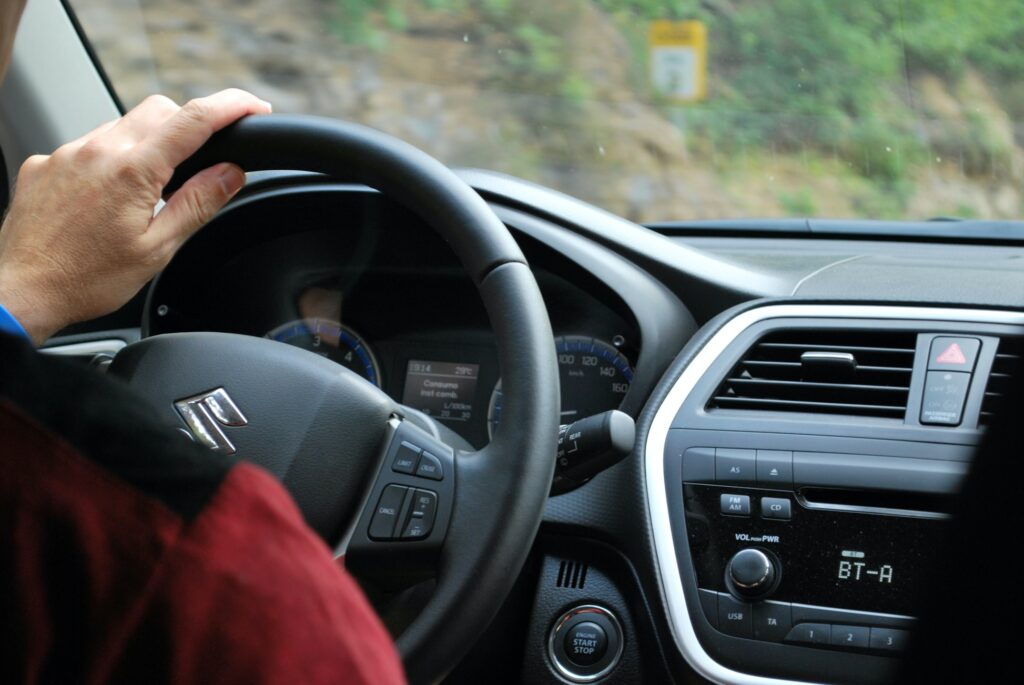Save Money on Gas with These Tips

Vehicle ownership can be expensive but there are ways to save money on gas that you might not have considered. Having a car will always cost money. Even if you own it outright, there is still insurance, gas, and maintenance to factor in. However, there are several ways to cut driving costs that can add up to real savings. Depending on your driving habits and personal situation, here are 10 money-saving driving tips that can put money back in your pocket.
Don’t Speed
Learning to drive slower may be excruciatingly painful but it will be a rewarding experience in the long run. Besides saving you money on potential costly speeding tickets and higher insurance premiums, slowing down will save on gas. Optimal fuel efficiency varies with each model car, but in general gas mileage per gallon starts to fall off above 50 mph. On average, for every 5 mph you drive above 50 mph costs an extra $0.13 to $.027 per gallon for gas.
Drive Consistently
Driving efficiently rather than aggressively can save money. Rapidly accelerating and slowing, then speeding up and braking is a waste of gas. On highways it can lower your fuel efficiency by approximately 15% to 30%; in stop-and-go traffic accelerating and braking can lower mpg by upwards of 40%. In real dollars and cents, a Department of Energy study found it could cost as much as an extra $1 per gallon.
Limit Time Idling
Other than warming your car up on a cold winter morning to heat the car cabin, do not warm your car for more than a minute. Unlike older models, today’s car engines do not require more than a minute to warm up. In fact, the engine will warm up faster by driving than letting it idle for several minutes. Idling wastes gas, about a quarter of a gallon for every 15 minutes of idling. That’s approximately an extra $90 a year spent on fuel going nowhere.
Use a Gas App
Download a gas app to keep a pulse on changing gas prices and where the best prices are at a given time. They really can help save on money at the gas pump. Gas apps not only let you find the best gas price in your area but report the gas prices.
Use Cruise Control
When on the highway, use your cruise control. That little sensor can save you up to 6% in fuel consumption every time you fill your tank.
Avoid Gas Stations Off the Highway
When traveling, it’s a safe bet to pass the gas stations near the highway on and off-ramps. Those first few gas stations are usually more expensive. If you haven’t downloaded a gas app yet before long-distance traveling would be a good time to do so. Otherwise, drive a little further from the exit and you will likely find gas for less.
Carpool
If you are a commuter, then you should definitely consider carpooling. Obviously, savings will depend on the length of the commute and the number of people in the car. However, even sharing a short 20-mile round trip commute with just one person can save approximately $200 a year on gas. That doesn’t include money saved from increased wear and tear on your vehicle that occurs when driving alone.
Keep a Maintenance Schedule
Think of this as a wellness program for your car. Change the oil, keep your tires at the right pressure, check the brakes, etc. By keeping up on routine less expensive maintenance, you can avoid larger, more expensive repairs over time. Follow the maintenance schedule suggested by the manufacturer in the car’s manual.
Get Some Exercise!
If the opportunity exists, whenever possible, consider walking, riding a bike or use public transportation to go to work, run your errands or visit friends. You will save money on driving, but it’s also good for your health and the environment.
Avoid Extra Weight in the Car
No matter the size of the vehicle, the heavier the load the lower the mpg. Weight is a drag—literally. Without really trying, “stuff” accumulates in the backseat, storage space or trunk. It could be tools, soccer equipment for the kids, golf clubs, extra coats, and so on. Keep in mind that for every extra 100 pounds of weight carried in a car, fuel efficiency is reduced by 1%. Because they are lighter, smaller cars are affected more than larger ones.
Is your vehicle becoming a money pit? Contact us today for a quality used car that can save you money over time!
